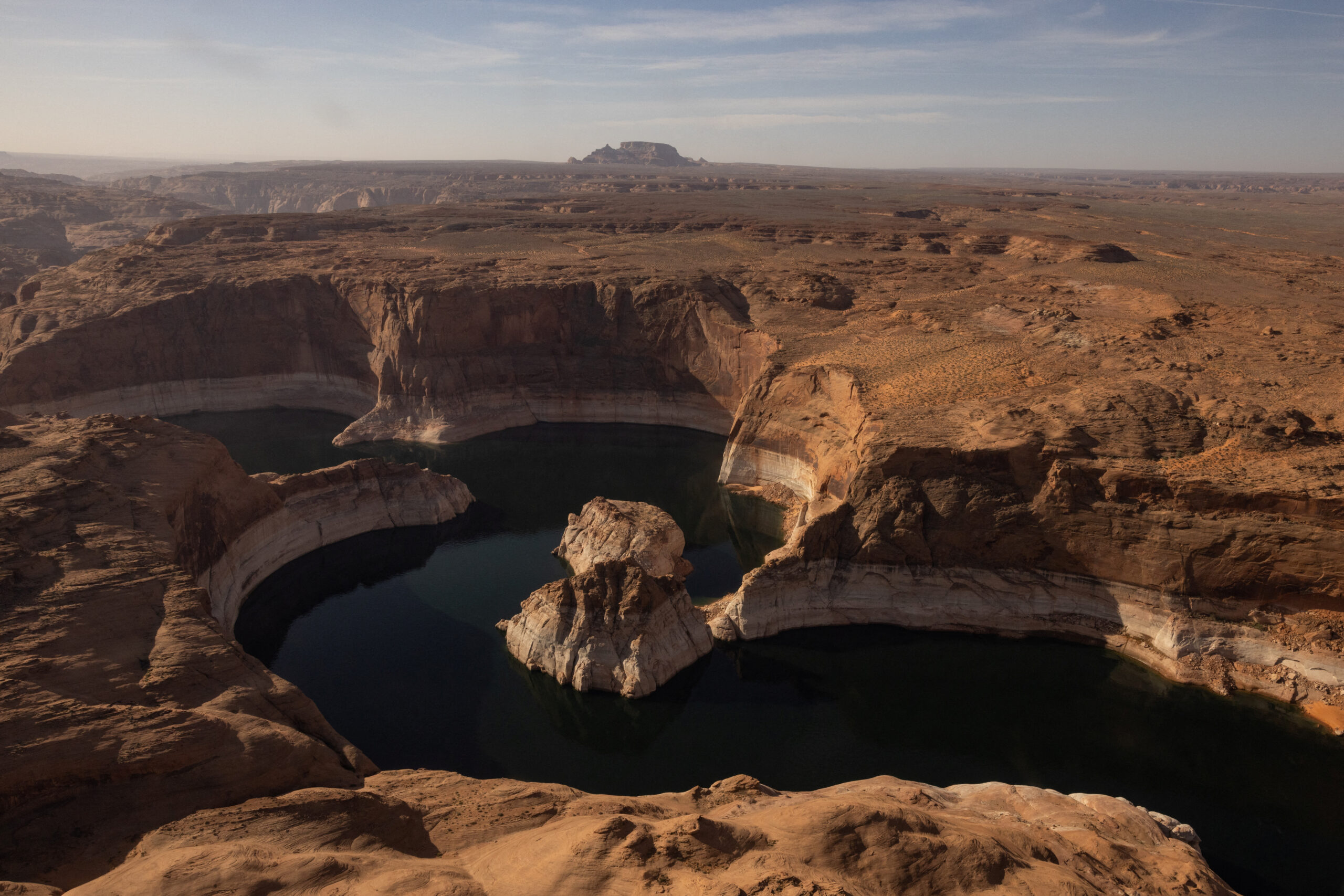3 Western states propose more water cuts to save Colorado River

An aerial view of Lake Powell is seen, where water levels have declined dramatically to lows not seen since it was filled in the 1960s as growing demand for water and climate change shrink the Colorado River and create challenges for business owners and recreation in Page, Arizona, U.S., April 20, 2022. REUTERS FILE PHOTO
California, Arizona and Nevada on Wednesday offered what they described as significant concessions on how much Colorado River water they claim, as their counterparts nearer the river’s source proposed more modest changes that would protect their rights.
The dual proposals renew longstanding tensions between the two groups of states within the Colorado River Compact, the century-old framework for sharing the vital source of irrigation for arid western farmland and drinking water for 40 million people.
The Lower Basin states of California, Arizona and Nevada and the Upper Basin states of Colorado, New Mexico, Utah and Wyoming reached an agreement last year that takes them through the end of 2026. They now are tasked with reaching a long-term agreement of at least 20 years that must meet the challenge of more extreme droughts expected with climate change.
READ: Western states reach ‘historic’ deal to help save Colorado River
“Ultimately this will get resolved but not without some elbows and shoving,” said Brad Udall, a climate scientist at Colorado State University.
Recognizing complaints that the Upper Basin was required to surrender too much water, the Lower Basin states agreed to reduce their allotments by 1.5 million acre-feet per year, roughly the amount consumed by 3 million households, said Arizona Department of Water Resources Director Tom Buschatzke.
Depending on reservoir levels, that could still leave a systemwide deficit of 2.4 million acre-feet, for which the Lower Basin proposed that each side share equally in assuming reductions, Buschatzke said.
READ: US states struggle to share dwindling waters of Colorado River
“We recognize the condition that the reservoirs are in, we recognize what climate change is doing to the flow of the river,” Buschatzke said. “And we’re stepping up to the plate in a big way to deal with that issue. And we expect Upper Basin to participate with us in stepping up to the plate.”
Chuck Cullom, executive director of the Upper Colorado River Commission, said his side’s proposal reflects the disadvantage the Upper Basin faces because it depends more on snowpack, which is volatile.
Lower Basin states can more easily adapt to changing conditions because of the more predictable reserves in Lake Mead, the reservoir formed by the Hoover Dam.
“Our water users have lived on the front lines of climate change for decades. The (Upper Basin) alternative provides an opportunity for our Lower Basin partners to begin sharing that burden,” Cullom said in an email.